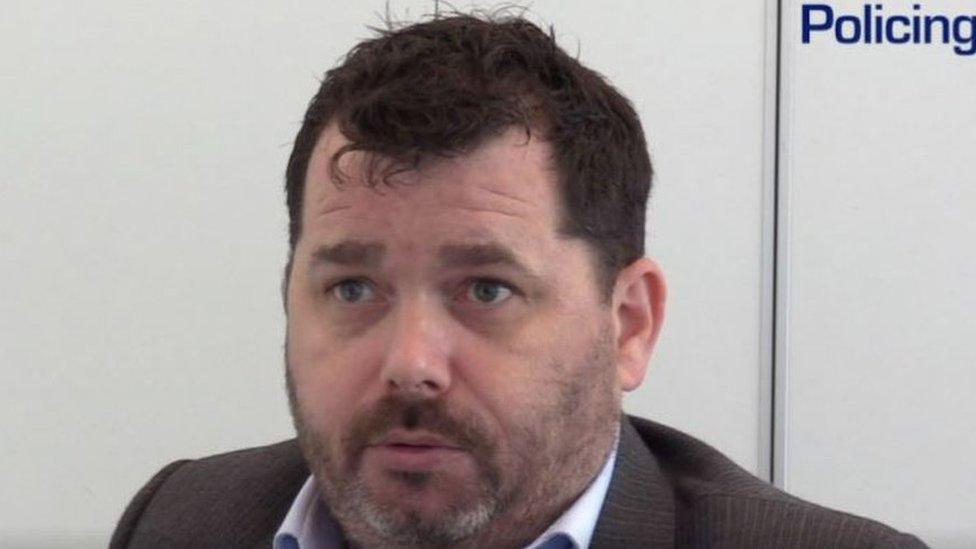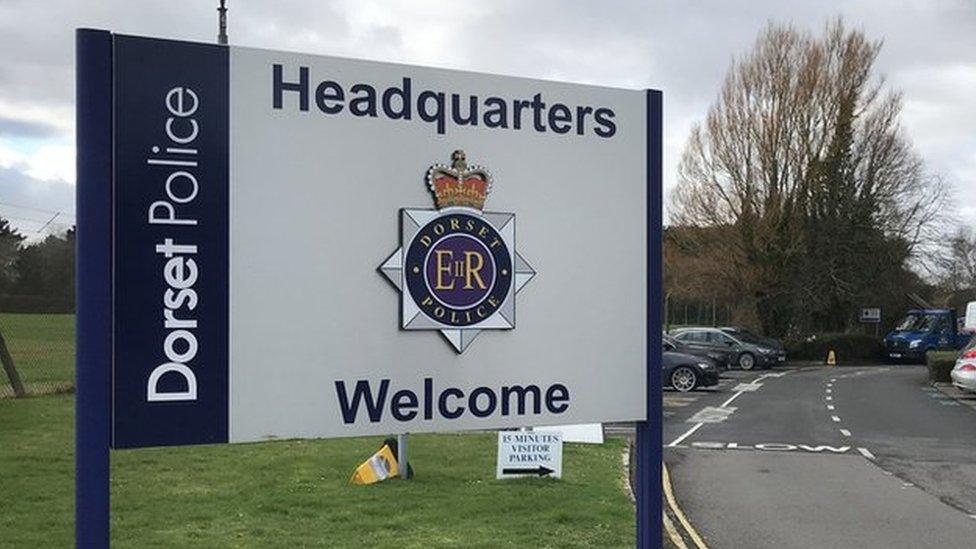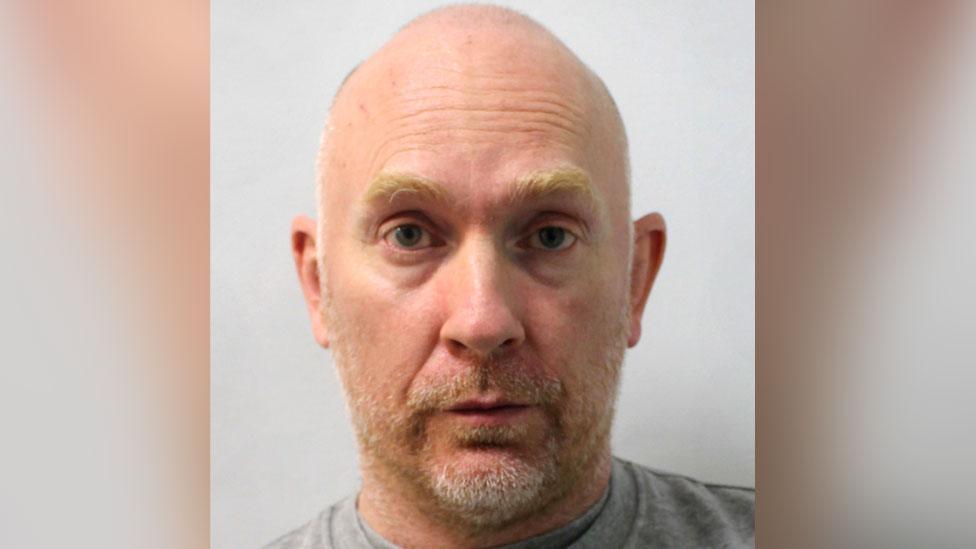Sarah Everard murder: Dorset Police officer guilty over 'gossip' wants change
- Published

Sgt Simon Kempton was found guilty at Dorset Police's headquarters of misconduct in February
A police officer given a final written warning for "gossiping" about the Sarah Everard murder case has criticised the way misconduct inquiries are conducted.
Sgt Simon Kempton, of Dorset Police, was working with the Police Federation when he shared details he was given by a journalist about Wayne Couzens' defence on an online group chat.
He was found guilty of misconduct in February after a year-long inquiry.
The police watchdog, which investigated the case, said changes had been made.
Met Police officer Couzens was sentenced to a whole-life term for the murder of Ms Everard, in a case that sparked national outrage.
Sgt Kempton's misconduct hearing was told the officer started one message to his colleagues on chat app Signal by saying "wait until you hear what his defence was".

The misconduct hearing was held at Dorset Police's headquarters in Winfrith
He went on to set out Couzens' false claims he had abducted Ms Everard and handed her over alive to a gang of eastern European men in order to pay off a debt.
Sgt Kempton was investigated by the Independent Office for Police Conduct but said the process "ruins families" because of the stress it causes while forces "too often forget" about their duty of care.
In an interview with Policing TV, external, he said the "key thing" the IOPC could do was to focus on proportionality and timeliness of its investigations.
"...it drives a wedge between the officer and the police service, so I've had to be very careful to make sure that wedge doesn't force too far apart," he said.
"It would be very easy to throw your hands up in the air and say not for me anymore."
He stressed that a "strong" investigative system to ensure police "act within the rules" was needed.
But he also highlighted that the time it takes to conduct the investigations and the impact this has on families and officers should also be considered.
A panel found he committed misconduct, namely by discreditable conduct and breaching standards on duties and responsibilities, authority, respect and courtesy.
His final written warning will be valid for two years.
The IOPC said it was important for investigations to be thorough, but stressed it was in everyone's interests for them to be completed "as quickly as is reasonably possible".
The watchdog said it made "huge strides" to improve its timeliness and it now completes 91% of its investigations in less than 12 months.
A spokesperson added: "But there are delays that are often out of our control, and we welcome more work where delays are occurring within other organisations.
"The whole system needs to work together to make further changes to improve timeliness."

Follow BBC South on Facebook, external, Twitter, external, or Instagram, external. Send your story ideas to south.newsonline@bbc.co.uk, external.
- Published25 February 2022

- Published22 February 2022
